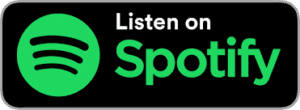Why Are The Sporting Goals That You Set Yourself Not Helping You

By working with David Charlton, you and your organisation will be better equipped to rise to modern day challenges and better informed to thrive on and off the pitch, course or court. Where he inspires individuals and teams to:
- Cope with pressure and challenges more effectively
- Maintain positive mental health
- Compete with confidence more often
- Manage your emotions better
- Improve your commitments levels
David is a Mental Toughness Practitioner, as well as a Health Care and Professions Council (HCPC) Registered Sport and Exercise Psychologist. He has successfully supported athletes, teams and organisations for over 10 years in order to ensure that they perform at their maximum more often.
He has a comprehensive knowledge around the development of Mental Toughness, a plastic personality trait, which determines or limits people to deal effectively with change, challenges and stressors. In today’s climate, during the Coronavirus pandemic this quality is becoming more and more valuable to individuals, teams and organisations.
In part 2 of David’s exploration surrounding ChatGPT’s and its response to the question What Can I Expect When Working With A Sport Psychologist, David explores the complexities of goal setting.
ChatGPT suggests setting SMART goals for performance and psychological well-being are part of working with a Sports Psychologist, which he is in agreement with. However, David points out that not all Sports Psychology practitioners are comfortable addressing psychological well-being. He goes on to emphasize the importance of goal ownership, discuss athlete’s tendencies to set goals, and the distinction between outcome, performance, and process goals as well as a lot more.
Key Learning Points:
- Goals are more powerful when they align with your personal core values.
- Management of the number of goals you set is important to avoid overwhelm.
- Tools such as the MTQ Plus (Mental Toughness Questionnaire) can assist Sports Psychologists and Coaches to recognise if athletes naturally set goals or not.
- An athlete who sets goals and an athlete who doesn’t set goals should be supported differently.
Connect with David Charlton
Join David @ The Sports Psychology Hub
Instagram, Facebook, Twitter and LinkedIN
To Listen to Related Podcasts To Help You Improve Your Understanding of Goal Setting
Ep217: Chris Cook – How A Marginal Gains Approach Can Help You Perform Better
Ep213: Sandro Forte – How To Set Yourself Up For Success In 2024?
Ep134: David Charlton – Observations: 3 Things That Stop You Achieving Your Goals
Ep098: Jon Bartlett – Do You Know Your Why?
Ep021: Steve Hackney – How to Reach Your Full Potential
Relevant Blogs And Resources To Help You Set Better Goals
Blog: How To Learn From Last Year
Blog: What Did You Learn From Last Year?
Blog: Make Better Decisions to Help Your Sport Performance including VALUES LIST
Click the button below to join The Sports Psychology Hub a Facebook group that David hosts to help ambitious athletes, serious sport coaches, sporting parents, sports psychologists and mental game coaches to support each other.
IF YOU ENJOYED TODAY'S SHOW PLEASE SHARE
SUBSCRIBE AND LISTEN ON YOUR FAVOURITE AUDIO PLATFORM
Also, kindly consider taking the 60-seconds it takes to leave an honest review and rating for the podcast on iTunes, they’re extremely helpful when it comes to the ranking of the show and we read every single one of them!

Best Wishes
David Charlton
Global Sports Psychologist who is located near Newcastle Upon Tyne, UK and willing to travel Internationally. David also uses online video conferencing software (Zoom, Facetime, WhatsApp) on a regular basis and has clients who he has supported in USA, Canada, South America, UAE, Australian and New Zealand.
Managing Director – Inspiring Sporting Excellence and Founder of The Sports Psychology Hub. With over 10 years experience supporting athletes, coaches, parents and teams to achieve their goals, quickly.
T: +44 7734 697769








